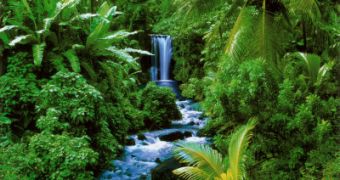For quite some time now, people from all over the world have been heading out to Guyana in search of gold.
Since digging for gold is basically a mining activity, it was to be expected that, much like in the case of coal mining, the ecological footprint of this booming industry would be an impressive one.
Thus, not long after gold mines started to develop here, local communities were faced with having their water sources contaminated, not to mention that most of the forest lands in this country were stripped bare of their vegetation so that the miners could be as efficient as possible in their work.
Moreover, because of constant interference with their natural flow, some of Guyana's rivers have had their basins severely altered.
It is not difficult to guess that this also has drastic consequences on local fishing and agricultural practices, and that the wellbeing of the country's biodiversity is also at stake.
Apparently, one of Guyana's residents argued that, sooner than expected, water in this part of the world would be as valuable as oil.
Interestingly enough, as IPS reports, it is not just the citizens of Guyana who protest against this gold rush. Some ex-miners back up their complaints, arguing that the mining industry in this part of the world is indeed harming the environment to a large extent.
Just recently, Guyana's high officials suddenly grew a green consciousness and decided that is was high time to halt any new mining operations in this South American region.
However, mining companies protested against this decision, arguing that it is not even a legal one.
The same source informs us that the Gold and Diamond Miners Association filed a lawsuit against the ban, and warned that it is even willing to resort to street protests should things not go its way.
For the time being, Guyana's authorities agreed to keep said ban in place for just one month, in order for environmental specialists to have time to investigate the overall pollution levels in this country.
Should you want to get a better idea of what is presently going on in Guyana, you can watch the video below.
[YOUTUBE=http://www.youtube.com/watch?v=yHuy-RjuNEg&feature=relmfu]

 14 DAY TRIAL //
14 DAY TRIAL //